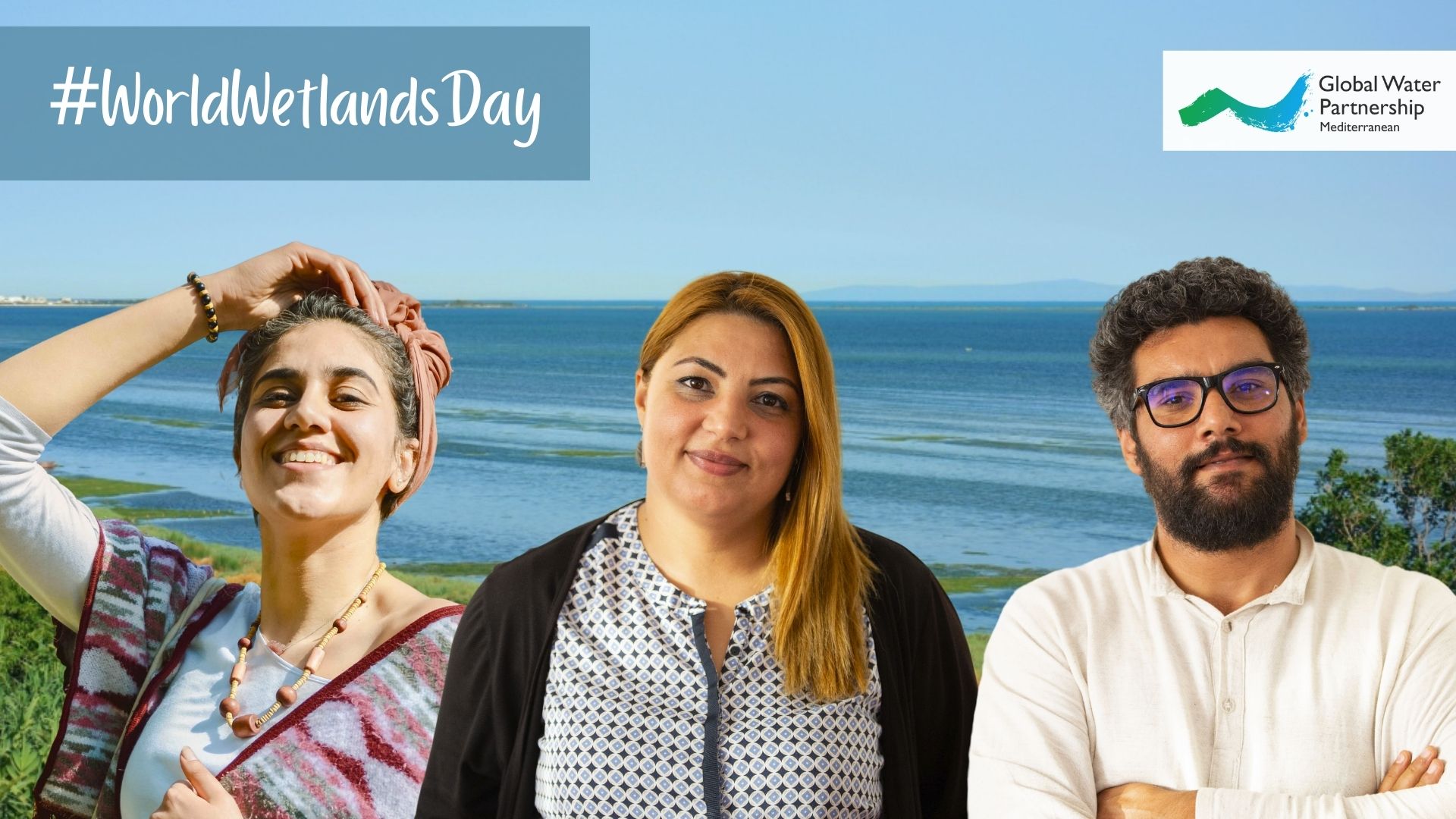World Wetlands Day 2021 is devoted to "Wetlands and Water". This year's celebration aims to shine a spotlight on wetlands as a source of freshwater and encourage actions to restore them and stop their loss.
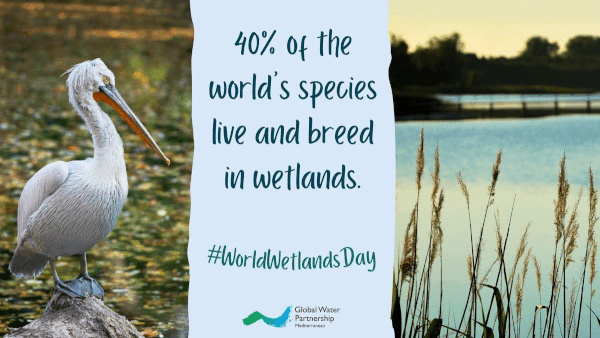
We spoke with three young entrepreneurs from the Ghar El Melh wetland area in Tunisia, who are developing their green ideas and business plans with the assistance of GWP-Med and WWF-North Africa, through the MAVA Foundation supported, GEMWET project. (Read more about project's recent activities, here and here.)
The Ghar El-Melh is a Wetland of International Importance in terms of its ecological value, however, the area is facing a relative lack of economic opportunities. Green business ideas have the potential to create economic value and boost youth employment opportunities, while helping preserve the unique natural and cultural value of the Ghar El Melh ecosystem. Business ideas developed through the GEMWET project include waste recycling, the development of organic agriculture, processing of local fisheries products, eco-tourism, and distillation of aromatic and medicinal plants.
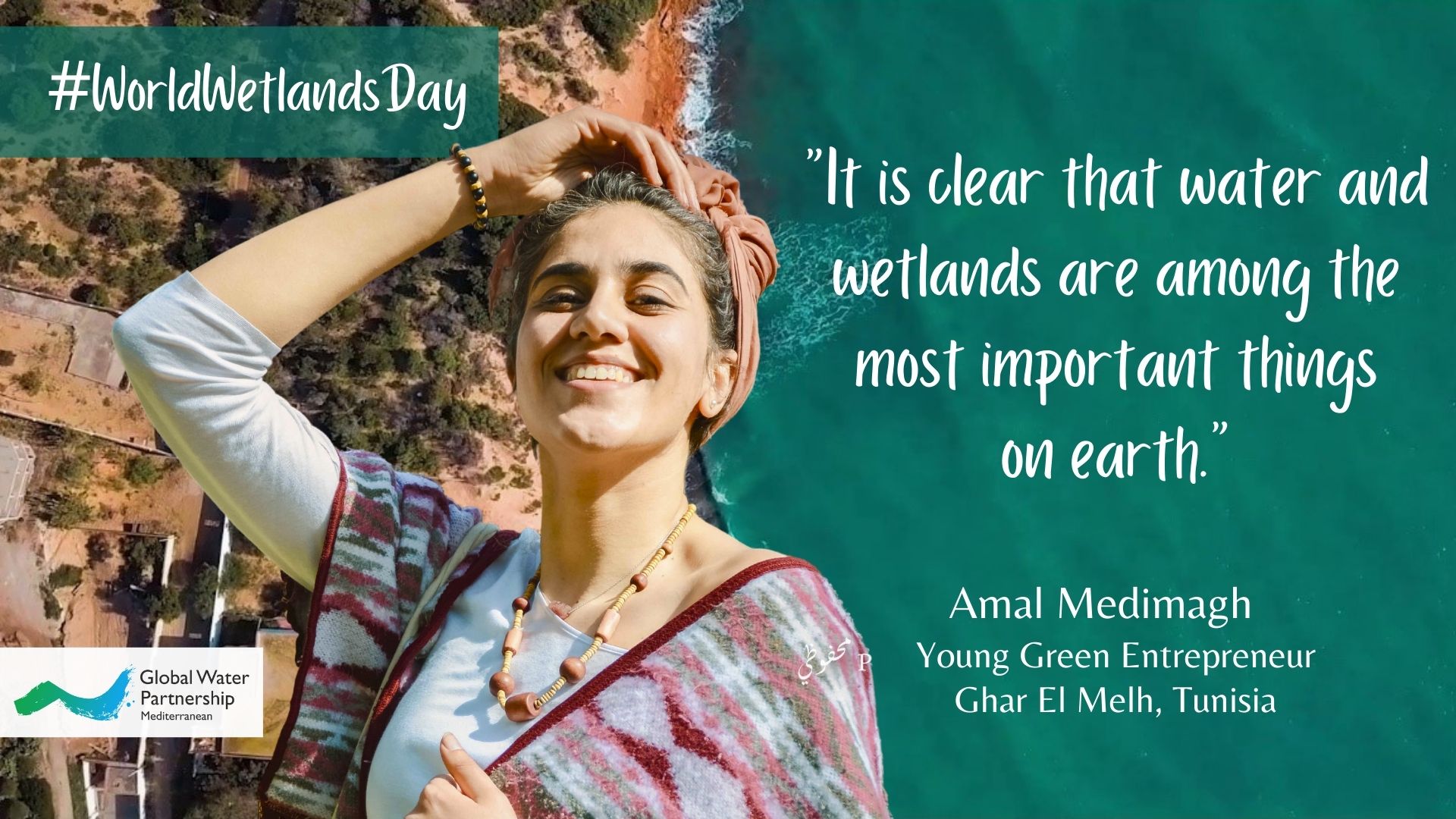
Ms. Amal Medimagh
“I created a distillery of aromatic flowers and plants, with an extensive commitment to the environment, where we source our materials sustainably and our ingredients locally, compost our distillation waste, embrace plastic-free packaging, partner with ecologically conscious vendors and attract like-minded clients and consumers; and of course, we reduce, reuse, and recycle anything and everything, mainly water, which shapes our activity, and our brand (Katra – قطرة), but most importantly, constructs and forms natural life.
It is evidently clear that water and wetlands are among the most important things on earth, as the lives of humans, animals, and plants depend on them for their survival.
If we all do our part in conserving precious water supplies, then step by step... and drop by drop... we can make a huge difference for the environment!”
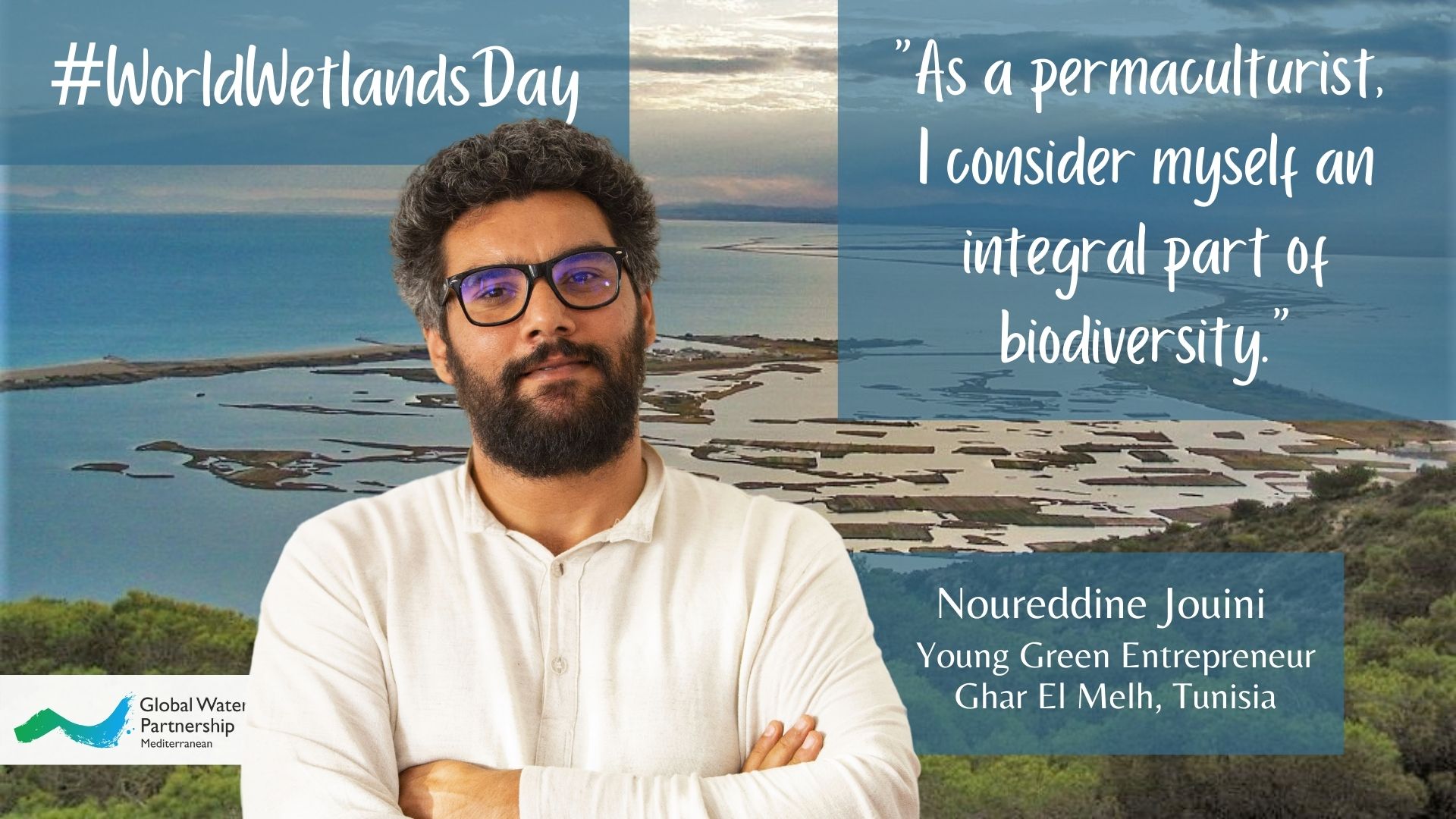
Mr. Noureddine Jouini
“As a permaculturist, market gardener of vegetables and aromatic and medicinal plants, I consider myself an integral part of biodiversity. So, I save local seeds from the perspective of food sovereignty and environmental protection.
If I take care of my seeds and pass on the conservation methods of traditional species to other farmers, we can, together, create beauty, define our identities, and give flavor and colour to our cultures and our dishes.
These preserved living beings, once returned to the fields, not only allow us to feed ourselves sustainably, but also to build shelters, to clothe us, to protect us from the cold, to treat our sick and to guarantee a healthy environment for bees, worms, microorganisms and the multitude of living beings that ensure the health and management of our crops, our animals and our soils, and the purity of our air and water and our wetlands."
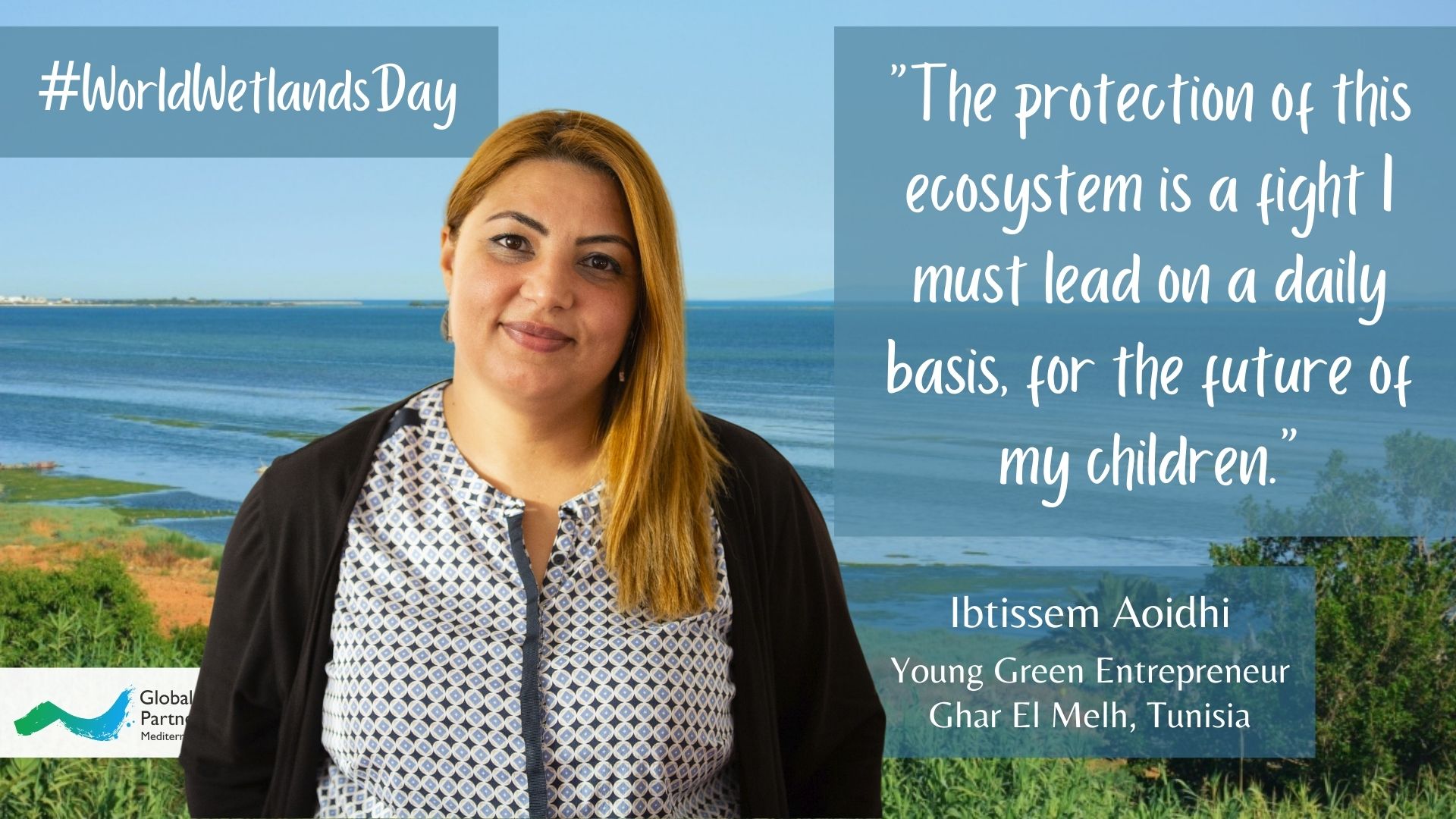
Ms. Ibtissem Aoidhi
"For me the protection of the environment and the ecosystem is more than a vocation or cause to which I am committed. It is a fight that I must lead on a daily basis to preserve the future of my children and future generations. It is a fight which I encourage anyone who cares about humanity to lead, because any act of recklessness that we commit today will reduce the time and quality of our life on planet earth."
The ‘Conservation and Sustainable Development of Coastal Wetlands with High Ecological Value’ (GEMWET) Project aims to assist economic, socio-cultural and ecological development in the Ghar El Melh. It is a wetlands area known for its ecological and heritage richness (a Ramsar wetland and the first Arab and North Africa city to be recognised as Ramsar city), which, however, is facing a range of developmental pressures particularly under climate vulnerability and change impacts. Economic activities are mainly related to tourism, lagoon/coastal fishing and agriculture.
Applying principles of the Integrated Methodological Framework for Integrated Water Resources Management (IWRM) and Integrated Coastal Zone Management (ICZM)*, the project aims at strengthening governance and local capacities for ecosystems’ monitoring and management; promoting the sustainable use of water resources; contribute fighting urban and industrial pollution; assist strengthening traditional farming practices; promoting responsible tourism; supporting the Ghar El Melh Coastal Development Programme; and engaging youth. With the support of the MAVA Foundation, the GEMWET Project is implemented under the lead of WWF North Africa and in partnership with BirdLife Europe, Association "Birds Friends", GWP-Med, UN Environment / Regional Activity Center of the Priority Actions Program (PAP/RAC), National Agronomic Institute of Tunis, Tour du Valat and IUCN.
